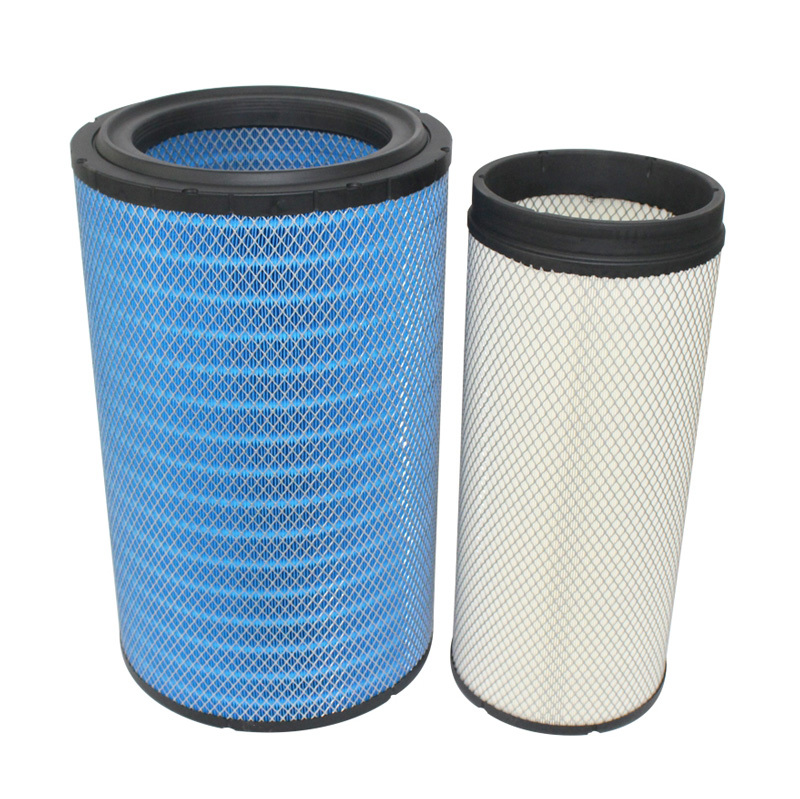Is Your Car's Air Quality at Risk? Discover the Importance of a Built-In Air Cabin Filter
Oct 09,2025
Is Your Car's Air Quality at Risk? Discover the Importance of a Built-In Air Cabin Filter Introduction to Car Air Quality and Its Impact on Health In today's fast-paced world, the quality of air we breathe, especially inside our vehicles, is often overlooked. A significant portion of our day is spent driving, whether for commuting, running errands, or road trips. Unfortunately, the air in our cars

Is Your Car's Air Quality at Risk? Discover the Importance of a Built-In Air Cabin Filter
Introduction to Car Air Quality and Its Impact on Health
In today's fast-paced world, the quality of air we breathe, especially inside our vehicles, is often overlooked. A significant portion of our day is spent driving, whether for commuting, running errands, or road trips. Unfortunately, the air in our cars can be more polluted than the air outside due to various factors such as exhaust fumes, dust, and allergens. This article delves into the risks associated with poor air quality in vehicles and highlights the importance of **built-in air cabin filters** for maintaining a clean and healthy atmosphere.
Understanding Cabin Air Filters: What Are They?
Definition and Function of Cabin Air Filters
Cabin air filters are designed to purify the air entering the vehicle's interior. They work by trapping pollutants, dust, pollen, and other particulates that can compromise air quality. Installed in the vehicle's ventilation system, these filters ensure that the air circulating inside your car is as clean as possible.
Types of Cabin Air Filters
There are primarily two types of cabin air filters:
1. **Particle Filters**: These filters capture larger particles, such as dust and pollen.
2. **Activated Carbon Filters**: In addition to trapping particles, these filters also neutralize odors and gaseous pollutants, providing an enhanced level of air purification.
The Risks of Poor Air Quality Inside Your Vehicle
Health Risks Associated with Contaminated Air
Poor air quality inside a vehicle can lead to various health issues. Prolonged exposure to allergens and pollutants can trigger:
- **Respiratory Problems**: Individuals with asthma or other respiratory conditions may experience heightened symptoms, including coughing, wheezing, and shortness of breath.
- **Allergic Reactions**: Dust and pollen can induce allergic reactions, resulting in sneezing, nasal congestion, and itchy eyes.
- **General Discomfort**: Stale air and unpleasant odors can lead to fatigue, headaches, and a lack of concentration while driving, increasing the risk of accidents.
Environmental Impact of Poor Cabin Air Filters
A compromised cabin air filter not only affects health but also contributes to environmental issues. When filters are clogged, the vehicle’s HVAC system works harder, consuming more energy. This increased fuel consumption leads to higher emissions, contributing to air pollution and climate change.
The Role of Built-In Air Cabin Filters in Enhancing Air Quality
How Built-In Air Cabin Filters Work
Built-in air cabin filters utilize various filtration techniques to cleanse the air that enters the vehicle. As air flows through the filter, particles are captured, ensuring that only clean air reaches the cabin. Regular maintenance and timely replacements of these filters are crucial for optimal performance.
Benefits of Using a Built-In Air Cabin Filter
Investing in a high-quality built-in air cabin filter offers numerous benefits:
1. **Improved Air Quality**: Filters effectively reduce pollutants, allergens, and bacteria, providing a healthier breathing environment.
2. **Enhanced Comfort**: Clean air enhances the overall driving experience, making journeys more pleasant.
3. **Reduced Odors**: Activated carbon filters work to eliminate unpleasant smells, such as those from smoke or food.
4. **Increased HVAC Efficiency**: A clean filter allows the HVAC system to function more efficiently, optimizing fuel consumption and reducing emissions.
Choosing the Right Cabin Air Filter for Your Vehicle
Factors to Consider When Selecting a Cabin Air Filter
When choosing a cabin air filter, consider the following factors:
- **Vehicle Compatibility**: Ensure the filter is compatible with your vehicle's make and model.
- **Filtration Type**: Decide between a standard particle filter and an activated carbon filter based on your air quality needs.
- **Brand Reputation**: Opt for filters from reputable manufacturers known for quality and reliability.
Where to Purchase Cabin Air Filters
Cabin air filters are available at various locations, including:
- **Automotive Parts Stores**: Local auto parts retailers often carry a wide selection of filters compatible with different vehicles.
- **Online Retailers**: E-commerce platforms provide convenience and often a broader range of options.
- **Vehicle Dealerships**: For OEM (Original Equipment Manufacturer) filters, visiting a dealership may be the best option.
How to Maintain and Replace Your Cabin Air Filter
Signs That Indicate a Filter Replacement is Needed
Regularly checking your cabin air filter is essential for maintaining optimal air quality. Look for these signs indicating it may be time for a replacement:
- **Reduced Airflow**: If you notice that air is not flowing as freely from the vents, it could be a sign of a clogged filter.
- **Unpleasant Odors**: A musty or stale smell can signal that the filter is saturated with contaminants.
- **Increased Allergy Symptoms**: If passengers are experiencing more frequent allergic reactions during drives, the filter may not be performing adequately.
Steps to Replace Your Cabin Air Filter
Replacing a cabin air filter is a straightforward process that can be done with minimal tools. Here’s a step-by-step guide:
1. **Locate the Filter Compartment**: Refer to your vehicle’s manual to find the cabin air filter location; it’s typically behind the glove box or under the dashboard.
2. **Remove the Old Filter**: Carefully take out the old filter, noting its orientation for proper installation of the new one.
3. **Insert the New Filter**: Follow the manufacturer's instructions to install the new filter in the correct orientation.
4. **Test the System**: After replacement, turn on the HVAC system to ensure proper airflow and check for any odors.
FAQs About Cabin Air Filters and Vehicle Air Quality
What is the lifespan of a cabin air filter?
The lifespan of a cabin air filter varies depending on driving conditions, but it typically needs replacement every 12,000 to 15,000 miles.
Can I clean my cabin air filter instead of replacing it?
While some filters can be cleaned, it is generally more effective to replace them to ensure optimal air quality.
How do I know if my car has a cabin air filter?
Most modern vehicles come equipped with a cabin air filter. Check your owner’s manual or consult your mechanic if you’re unsure.
Will using an activated carbon filter improve my air quality?
Yes, activated carbon filters are particularly effective at reducing odors and capturing gaseous pollutants, enhancing overall air quality.
Can I install a cabin air filter myself?
Yes, replacing a cabin air filter is a simple DIY task that most car owners can handle with minimal tools.
Conclusion: Prioritize Your Vehicle's Air Quality with a Built-In Air Cabin Filter
Ensuring the air quality inside your vehicle is paramount for both health and comfort. A built-in air cabin filter plays a crucial role in achieving a cleaner, safer environment by trapping harmful pollutants, allergens, and odors. By regularly maintaining and replacing these filters, you not only protect your health but also enhance your driving experience and reduce your vehicle's environmental impact. In a world where we spend a significant amount of time in our cars, investing in a quality cabin air filter is indeed a smart choice for every vehicle owner.
TAG:
PREVIOUS:
Contact Us







